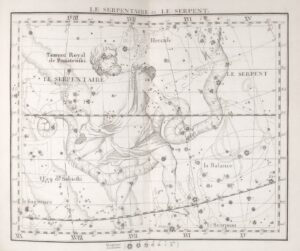Moore: The Analytic Turn of Philosophy
In the early 20th century, a significant shift occurred in the field of philosophy, known as the analytic turn. One of the key figures in this movement was the British philosopher G.E. Moore. Moore’s contributions to philosophy, particularly in the areas of epistemology and metaphysics, have had a lasting impact on the discipline.
Moore was known for his rigorous and systematic approach to philosophical inquiry. He believed that philosophy should be grounded in careful analysis of concepts and language, and that clarity and precision were essential for philosophical progress. This emphasis on analysis became a defining characteristic of the analytic tradition.
One of Moore’s most famous works is his essay “The Refutation of Idealism.” In this essay, Moore sets out to challenge the idealist position that the external world is merely a product of our own minds. He argues that there is a fundamental distinction between our perceptions and the objects of our perceptions, and that this distinction provides strong evidence against idealism.
Moore’s argument in “The Refutation of Idealism” is based on what is now known as the “common sense” view of reality. According to Moore, our everyday experiences and perceptions of the world around us are evidence enough to refute the idealist claim that the external world is a mere figment of our imagination. He argues that we have direct access to external objects and that our perceptions are not just mental representations but are, in fact, the objects themselves.
To illustrate his point, Moore famously holds up his hands and says, “Here is one hand, and here is another.” He argues that this simple act of perception provides undeniable evidence of the existence of external objects. If the external world were merely a creation of our minds, then there would be no reason to believe that our perceptions accurately represent the world outside of us.
Furthermore, Moore contends that the idealist position leads to a problematic infinite regress. If the external world is nothing but a construct of our own minds, then what guarantees the reliability of our mental processes themselves? If our thoughts and perceptions are also products of our own minds, then we have no basis for trusting our own cognitive faculties. Moore argues that this skeptical position is untenable and that we must accept the reality of the external world.
Moore’s argument in “The Refutation of Idealism” sparked significant debate and has been influential in shaping subsequent discussions in epistemology and metaphysics. Philosophers are still studying and debating his ideas today because of his emphasis on careful analysis and logical argumentation, which has come to represent the analytic tradition in philosophy.
Building upon his refutation of idealism, Moore delves deeper into the nature of perception and the relationship between our mental states and the external world. He argues that our perceptions are not mere representations or reflections of our mental states, but rather direct experiences of the objects themselves.
To support his argument, Moore introduces the concept of sense data. He suggests that when we perceive an object, we are not perceiving the object itself, but rather the sense data that is presented to us. Sense data, according to Moore, are the immediate objects of our perception and are distinct from our mental states.
Moore further explains that sense data are not subjective or dependent on our mental states. They have an objective existence and are independent of our thoughts and beliefs. For example, when we see a red apple, the sense data of the apple’s color is not a product of our own mind, but rather an objective feature of the external world.
By emphasizing the objectivity and immediacy of sense data, Moore strengthens his argument against idealism. He contends that if our perceptions were solely products of our own minds, then they would be subjective and dependent on our mental states. However, the fact that we have direct and immediate access to sense data suggests that our perceptions are not solely the result of our mental processes.
In addition to his critique of idealism, Moore also addresses the issue of skepticism. He acknowledges that his refutation of idealism does not completely eliminate the possibility of skepticism, as there may still be doubts and uncertainties about the external world. However, Moore argues that the existence of sense data and our direct awareness of them provide a strong foundation for knowledge and certainty.
Overall, Moore’s refutation of idealism not only challenges the dominant philosophical position of his time but also raises important questions about perception, the nature of reality, and the limits of knowledge. His arguments paved the way for further discussions and debates in the field of epistemology and continue to influence contemporary philosophical thought.
One of the key aspects of Moore’s defense of common-sense beliefs is his emphasis on the immediacy and directness of our experiences. According to Moore, our common-sense beliefs are not based on any kind of inference or reasoning, but rather on the immediate awareness we have of the world around us. For example, when we see a red apple, we do not need to reason or infer that it is red; we simply perceive it as such. This direct awareness, Moore argues, is a reliable basis for our beliefs.
This emphasis on direct awareness is in contrast to the skeptical arguments put forth by philosophers like Descartes. Descartes famously raised doubts about the reliability of our senses, suggesting that they could be deceived or manipulated. Moore, however, rejects this skepticism and maintains that our senses provide us with a direct and accurate perception of the world. He argues that the evidence of our everyday experiences, such as seeing and interacting with other people, is sufficient to justify our common-sense beliefs.
In addition to his defense of common-sense beliefs, Moore also developed a method of philosophical analysis that has had a significant impact on the field. This method, known as analysis, involves breaking down complex concepts or propositions into simpler, more basic elements in order to gain a clearer understanding of their meaning. Moore believed that many philosophical problems could be solved through careful analysis and clarification of concepts.
Moore’s analytic approach has been influential in shaping the field of philosophy, particularly in the analytic tradition. His emphasis on clarity and precision in philosophical discourse has helped to establish a rigorous and systematic approach to the study of philosophical problems. Many subsequent philosophers have adopted this strategy, and it is still a crucial component of modern analytic philosophy.
In conclusion, G.E. Moore’s defense of common-sense beliefs and his analytic approach to philosophy have made significant contributions to the field. His arguments against skepticism and his emphasis on direct awareness have provided a strong foundation for our everyday beliefs. Additionally, his method of analysis has helped to bring clarity and precision to philosophical discourse. Philosophers still study and discuss Moore’s work, and his ideas are still relevant today.






















+ There are no comments
Add yours